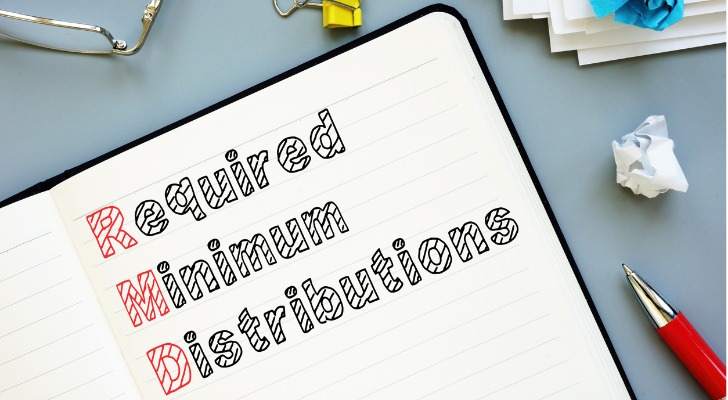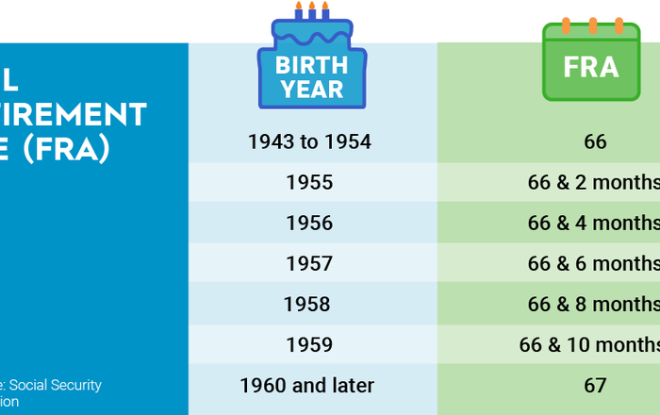Ask an Advisor: Will Reinvesting My RMD Trigger Double Taxation?
If I am not spending all my required minimum distribution (RMD) money each year, can I roll some of this back into my stocks? If so, will I be taxed on the amount rolled back in? Would this be considered double taxation? If I’m only taxed on the additional interest this money generates when I reinvest it, how would this interest be calculated & kept track of? Also, would this extra income be better spent on some other investment, like real estate, considering that you can write off expenses?
-Karen
You can use your RMD money in any way you like, including reinvesting it in stocks. It would then behave like any other non-retirement investments you have. The RMD itself would not get taxed again, so there would be no double taxation. But if the new investments generated any income, that would be taxed.
Each year, you receive 1099s for any interest or dividends earned on securities or information about any securities that were sold. If you chose to invest directly in rental real estate, you would be taxed on any rental income in excess of expenses. Other real estate investment options would be taxed more like regular securities than direct ownership of rental properties.
Consulting with a financial advisor may help determine which investments would work best along with your existing investments and retirement accounts. Connect with a fiduciary advisor.
When You Don’t Need Your RMD
SmartAsset and Yahoo Finance LLC may earn commission or revenue through links in the content below.
RMDs must be withdrawn from pre-tax retirement accounts whether you need or want to take the money out. Since that money has not yet been taxed, the IRS wants to make sure the withdrawals are taken and the money is finally taxed.
But what you do with your RMD money is totally up to you. Among the many options for that money you could:
-
Use it to pay regular expenses
-
Invest it
-
Contribute to a Roth IRA (if you have enough earned income)
-
Donate it directly to a charity as a qualified charitable distribution (QCD) and avoid RMD taxes (assuming the RMD is from an IRA)
-
Gift it to someone you love
-
Save it for a rainy day
There are no restrictions on what you do with your RMD after you’ve taken it, as long as you do take the required amount. (But if you need help planning for and managing your RMDs, connect with a financial advisor and see how they can help.)
Many Investment Options
Investing your RMD can be a great way to keep your money working for you. Before you decide how to invest it, review your entire portfolio to determine the best way to add value to your current holdings. You’ll also want to consider how soon you might want to use that money – your time horizon – since that can affect your investment choices as well.
Stocks offer the opportunity for growth, especially over the long term. Many corporations regularly pay dividends to their shareholders, which would increase your current income streams or could be reinvested. You can invest in stocks directly or through mutual funds or exchange-traded funds (ETFs). (A financial advisor can help you evaluate different investments and choose the best fits for your situation.)
Real estate can also be a lucrative investment, and it can be done in several ways. Along with buying properties to either rent or flip, you can also invest in real estate investment trusts (REITS), real estate funds or crowdfunded real estate.
-
REITs are similar to mutual funds and ETFs but hold dozens or hundreds of rental properties or mortgages, offering a diverse real estate portfolio with every share.
-
Real estate mutual funds or ETFs hold a variety of REITs and possibly other real estate focused securities (like construction industry stocks, for example).
-
Crowdfunding pools money from many investors to fund real estate projects or purchase private real estate investments that would otherwise be inaccessible to most investors.
REITs, real estate funds and crowdfunding offer the opportunity to invest in real estate with minimal cash outlay, which can be a more flexible financial choice.
How Investments Are Taxed
Investments get taxed only when you earn money from them. The form those earnings take depends on the type of investment. For example, stocks may provide dividend income, bonds provide interest income and rental properties generate rental income. In addition to those ongoing earnings, investments will also be taxed when you sell them for a profit.
When you buy any investment, the total amount you pay for that investment counts as your basis. The basis is used to calculate any gains or losses when the investment is eventually sold. That means you won’t pay tax on the amount you invested, just the extra money you receive when you sell it.
For example, if you bought some stock for $10,000 and later sold it for $12,000, you would only pay tax on the $2,000 profit. (If you need help planning around the taxes that you’ll pay on investments, consider speaking with a financial advisor.)
Tax Benefits of Direct Real Estate Investments
Investing in rental properties offers a unique opportunity to generate positive cash flow and tax losses. That’s due to the wide variety of expense write-offs that rental properties offer. Landlords can deduct expenses directly linked to the property along with the costs of running this business.
Common real estate tax write-offs include:
-
Mortgage interest
-
Property insurance
-
Property taxes
-
Management fees
-
Repairs and maintenance
-
Advertising for tenants
-
Legal fees
-
Accounting fees
Along with these cash-intensive expenses, rental properties are also subject to depreciation. That allows you to deduct a portion of the cost of the property every year, increasing the write-offs. These expenses offset the rents that are collected and reduce the taxable income the investment generates. (If you’re looking to invest in rental properties, a financial advisor can help you plan for doing so.)
Bottom line: Reinvesting your RMD can provide the potential for additional growth and income in retirement. Evaluating your portfolio, especially with input from a trusted financial advisor, can help you figure out which types of investments will be most suitable for your situation.
Tips for Finding a Financial Advisor
-
If you need help finding and choosing a financial advisor, start by assessing your needs and goals. Perhaps you’re seeking help selecting investments or managing restricted stock units (RSUs) that your company has granted. Or maybe you’re looking for comprehensive financial planning services. Evaluating your needs and objectives can help you determine what services the advisor you hire will need to provide.
-
Finding a financial advisor doesn’t have to be hard. SmartAsset’s free tool matches you with up to three vetted financial advisors who serve your area, and you can have a free introductory call with your advisor matches to decide which one you feel is right for you. If you’re ready to find an advisor who can help you achieve your financial goals, get started now.
-
Keep an emergency fund on hand in case you run into unexpected expenses. An emergency fund should be liquid — in an account that isn’t at risk of significant fluctuation like the stock market. The tradeoff is that the value of liquid cash can be eroded by inflation. But a high-interest account allows you to earn compound interest. Compare savings accounts from these banks.
-
Are you a financial advisor looking to grow your business? SmartAsset AMP helps advisors connect with leads and offers marketing automation solutions so you can spend more time making conversions. Learn more about SmartAsset AMP.
Michele Cagan, CPA, is a SmartAsset financial planning columnist and answers reader questions on personal finance and tax topics. Got a question you’d like answered? Email AskAnAdvisor@smartasset.com and your question may be answered in a future column. Questions may be edited for length and clarity.
Please note that Michele is not a participant in the SmartAsset AMP platform, nor is she an employee of SmartAsset. She was compensated for this article.
Photo credit: ©iStock.com/Andrii Dodonov, ©iStock.com/shapecharge
The post Ask An Advisor Can I Reinvest My RMD in Stocks or Real Estate? I Worry About Double Taxation appeared first on SmartReads by SmartAsset.





Leave a Reply